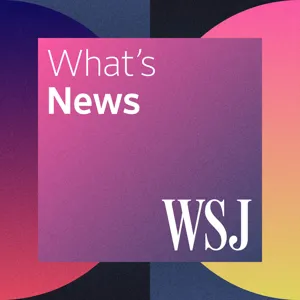Podcast Summary
Multiple jobs, Increased stress: Due to rising expenses and inflation, more Americans are holding multiple jobs, which while a sign of a growing job market, also leads to increased stress and financial pressure.
More Americans are finding it necessary to hold multiple jobs due to rising expenses and inflation, with the number of people doing so increasing from the pandemic low. This trend, while indicative of a growing job market, also signifies increased stress for individuals. The ease of finding second jobs, facilitated by remote work and flexible employment opportunities, has made it less of a barrier for those seeking additional income. However, this discussion also highlighted the persistence of hate and violence against Jews on college campuses, as reported by Columbia University. These issues underscore the complexities and challenges faced by individuals in today's economic landscape.
Multiple jobs, economic challenges: Despite a softening labor market, some workers, especially those at the lower end of the income scale and minorities, continue to hold multiple jobs due to financial necessity. Meanwhile, Goldman Sachs plans to cut over 1,300 jobs and the Fed is expected to start cutting interest rates in response to economic challenges
Even as the labor market shows signs of softening, there are still many people, particularly those at the lower end of the income scale and minorities, who are holding down multiple jobs due to financial necessity. At the same time, Goldman Sachs is reportedly planning to cut more than 1,300 jobs as part of an annual review process, impacting various divisions and already underway through the fall. The Fed's preferred inflation gauge remained steady in July, with the Personal Consumption Expenditures Price Index (PCE) rising 2.5% year-over-year and the core index holding at 2.6%. With these economic indicators, the Fed is expected to start cutting interest rates when they meet next month. These developments underscore the ongoing challenges faced by workers and businesses in the current economic climate.
Impact of school policies, EU drug violence: U.S. inflation data caused stock markets to rally, but schools implementing new policies and EU's unprecedented drug-related violence raise concerns for society and require further investigation
Inflation data in the U.S. markets caused traders to slightly adjust their expectations for Fed interest rate cuts, leading to a strong finish for the month for the S&P 500, Dow, and NASDAQ. However, schools in the U.S. are implementing new policies, such as banning cell phones in classrooms, raising questions about its impact on students. Meanwhile, European countries are grappling with unprecedented levels of drug-related violence, according to European law enforcement authorities. This violence, including killings, torture, kidnappings, and intimidation, is linked to the drug trade and is affecting once-peaceful societies in Denmark, Sweden, and the Netherlands. The EU's law enforcement arm and drug agency identified 821 serious criminal networks with over 25,000 members. The causes of this rise in violence and its implications are issues that warrant further exploration.
European cocaine market: Europe, with its large ports and history of conflict, has become the world's largest market for cocaine, leading to a surge in drug-related violence in countries like Belgium, the Netherlands, and Sweden.
The European continent has become the largest market for cocaine in the world, leading to a surge in drug-related violence. Countries like Belgium, the Netherlands, and Sweden have been most affected, with large ports serving as entry points for the drugs. Europe's history of conflict, such as the wars in former Yugoslavia and Ukraine, has contributed to the availability of weapons fueling the violence. European authorities are working together and taking individual actions to address the issue, including calling in the military in Sweden and proposing prison system changes in the Netherlands. However, they appear to be playing catch-up in dealing with the escalating violence.
College campus safety, Financial credit cards: Ongoing concerns for Jewish students' safety on college campuses and the scrutiny of 'credit builder' cards' unique operational structure highlight the importance of protecting individual rights and ensuring safety in education and finance.
There are ongoing efforts to address safety concerns for Jewish students on college campuses, as reported by Sydney Rasmussen of the Wall Street Journal. Meanwhile, in the realm of finance, there's a growing trend of "credit builder" cards that help users improve their credit scores without borrowing money. However, these cards have come under scrutiny due to their unique operational structure. In the Netherlands, there's a proposal to introduce a stricter prison system for mafia bosses, aiming to isolate them from their families and restrict communication. At Columbia University, a task force recommends new measures to combat anti-Semitism, including faculty training and a broader definition of anti-Semitism. The debates surrounding these issues highlight the importance of protecting individual rights and ensuring safety, whether it's in the context of education or finance.
FinTech impact on credit score: Using FinTech products like buy now, pay later cards can affect your credit score even without taking out a loan. Regulators are examining these partnerships with banks, which could result in new regulations.
The use of certain financial technology (FinTech) products, such as buy now, pay later cards, can impact your credit score even though no loan is taken out. Regulators have been examining these FinTechs and their partnerships with banks, which could lead to new regulations. It's important to stay informed about these developments as they may affect your financial decisions. Additionally, please note that there will be a break from the usual weekend programming and the show will be off on Monday for Labor Day in the United States. Stay tuned for a new episode on Tuesday morning.
